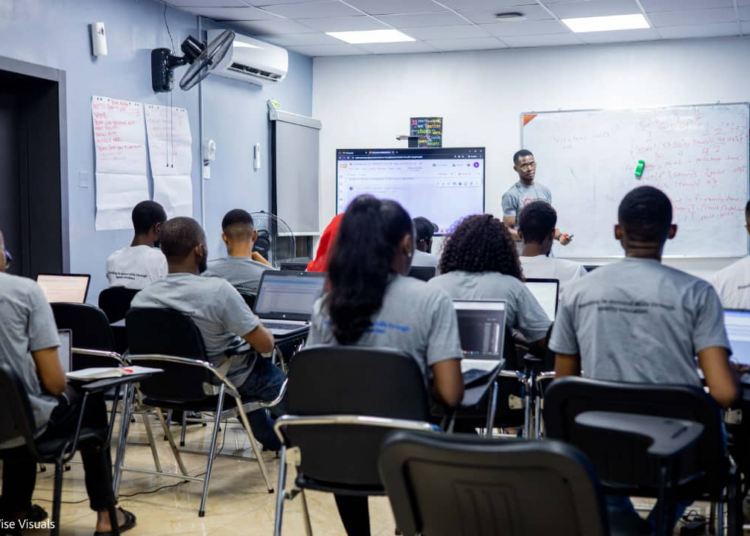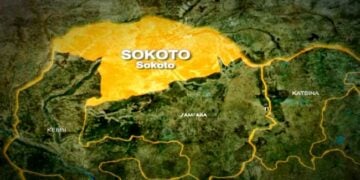In recent years, the importance of digital skills training has become increasingly evident, particularly in the context of Africa’s rapidly evolving job market. However, many young Africans still encounter significant barriers when attempting to access digital education. These obstacles can be broadly categorized into economic, geographic, and infrastructural challenges, all of which hinder the ability of youths to acquire necessary skills in a world increasingly driven by technology.
Economic constraints remain one of the most significant barriers to accessing digital education in Africa. Many young people come from low-income backgrounds where the financial burden of education—whether it be tuition fees, course materials, or related expenses—can be overwhelming. This situation is exacerbated by the high rates of unemployment and underemployment prevalent in many African countries.
In many cases, families prioritize immediate economic needs over educational investments, making it difficult for youths to pursue digital skills training. The cost of internet access, which is often required for online courses, can also pose a significant hurdle. With many families struggling to meet basic needs, the expense associated with digital education can feel prohibitive.
Geographic factors further complicate access to digital education. Young people in rural or remote areas face unique challenges that their urban counterparts do not. These regions often lack educational institutions that offer digital skills training, and even when such programs are available, the distance to these centers can deter participation.
Moreover, many rural areas suffer from inadequate internet connectivity. Access to reliable and high-speed internet is crucial for engaging in online courses, participating in virtual classrooms, and completing assignments. In many cases, the lack of infrastructure means that young people in these areas are effectively cut off from digital education opportunities, perpetuating a cycle of disadvantage.
Infrastructural issues also play a significant role in limiting access to digital education across Africa. Many educational institutions lack the necessary technological resources to offer comprehensive digital training programs. This can include outdated computer equipment, insufficient software, and inadequate classroom facilities that do not support interactive learning.
Furthermore, the quality of teaching can be inconsistent due to a shortage of qualified instructors trained in digital education. Many educators themselves may lack the necessary skills to teach digital concepts effectively, which can diminish the overall quality of training programs.
Amid these challenges, organizations like Blossom Academy are working to bridge the gaps in digital education access for young Africans. As a pioneering data science academy in West Africa and the first data science academy in Ghana, Blossom Academy focuses on equipping youths, particularly those from low-income backgrounds, with essential data skills necessary for the digital economy.
To address economic barriers, Blossom Academy offers its training programs at no cost to selected students. This is made possible through partnerships with various funding organizations, philanthropic entities, and governmental agencies. By eliminating financial constraints, the academy ensures that promising candidates from underprivileged backgrounds can access quality digital education without the burden of tuition fees.
Blossom Academy also focuses on providing resources that extend beyond the classroom. For instance, partnerships with platforms like DataCamp allow students to gain access to premium resources, enabling them to continue learning beyond their formal training periods. This approach not only enhances the students’ skill sets but also prepares them for real-world challenges in the job market.
To combat geographic barriers, Blossom Academy has developed a mobile training model, which includes remote learning opportunities that make digital education accessible to students regardless of their location. By leveraging online platforms, the academy reaches students in rural and underserved areas, providing them with the same quality of education available to those in urban centers.
Additionally, Blossom Academy collaborates with local educational institutions, such as universities, to identify and recruit promising students from various regions. This strategy helps to ensure that even those from remote areas can benefit from the academy’s programs and have access to valuable digital skills training.
Recognizing the need for better infrastructure, Blossom Academy emphasizes partnerships with organizations that can provide technological support. By working with companies and educational institutions, the academy aims to enhance the resources available to its students, including access to updated hardware, software, and learning materials.
Furthermore, the academy places a strong emphasis on training instructors who can effectively deliver digital skills education. By developing a robust training program for educators, Blossom Academy ensures that students receive quality instruction that meets industry standards.
Blossom Academy also seeks to foster a supportive community among its students and alumni. By creating networks that connect current students with graduates working in the field, the academy facilitates mentorship opportunities that can guide trainees as they navigate their career paths. This community support can be particularly valuable for those facing challenges in accessing job opportunities after completing their training.
While the barriers to accessing digital education in Africa are significant, initiatives like those undertaken by Blossom Academy illustrate the potential for overcoming these.




